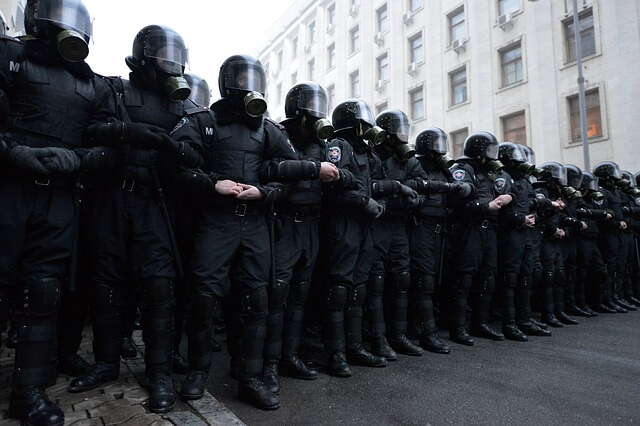Risk Assessment for Officers

Imagining different scenarios and evaluating how you would respond can be valuable mental training that can help prepare officers for the unexpected.
By Roma Blackham, Marketing —
The controversial deaths of Alton Sterling, Philando Castille, among others, have caused many people to question the role of the police and the relationship between police and the public. Another topic brought to the forefront is the role of risk assessment for police officers. Police officers put their lives in danger for the good of the public. Consequently, risk assessment and officer safety is often at the front of their minds.
Risk Assessment
When it comes to life-threatening situations, police officers must decide whether their involvement will help or hinder the situation. For example, in a situation where an officer is inadequately prepared, it may not be wise to rush into the scene of action. A better task might be to prevent family or friends from rushing into the situation where they could become additional victims.
Four Questions
Police officers are responsible for assessing the risks for themselves, and for others before putting their lives in danger in order to save an individual life, but sometimes it can be difficult to evaluate the situation. Jon Gaskins, a law enforcement officer, suggested the following questions when debating whether to act in a potentially life-threatening situation:
Four Questions
Police officers are responsible for assessing the risks for themselves, and for others before putting their lives in danger in order to save an individual life, but sometimes it can be difficult to evaluate the situation. Jon Gaskins, a law enforcement officer, suggested the following questions when debating whether to act in a potentially life-threatening situation:
1 Adequate Training: Do I have the necessary training to assume the increased risk level and resolve the situation? Am I physically capable?
2 Level of Experience: Do I possess the experience necessary to address the problem, or do I need to call for a supervisor? Some tasks may require a specialized team or member of the department.
3 Proper Equipment: Do you have the proper equipment for risk level involved? If you don’t have a personal flotation device, then you might reconsider jumping into the lake to save a drowning person.
4 Gut Feeling: What does your gut feeling tell you? You have a sixth sense that the decision you’re about to make is not a well-thought as you would like
Imagine the Scenario
Another way to practice risk assessment is to imagine your own reaction in different situations, especially situations in which a life could be saved. Imagining different scenarios and evaluating how you would respond can be valuable mental training that can help prepare officers for the unexpected.
Conclusion
Evaluating difficult situations is an important part of an officer’s duty, to himself and to the public. Making these competent decisions may not be easy, especially when a life is in danger. But by assessing the situations and the risks involved, more lives can ultimately be saved.
Photo courtesy of pixabay.

